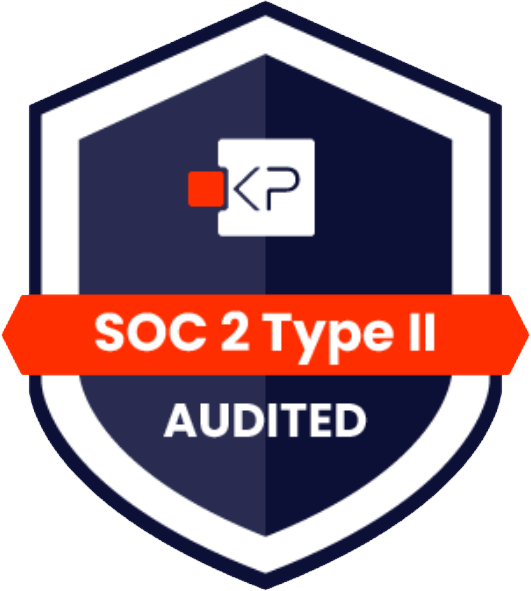A sales team that greatly exceeds average expectations is a formidable competitive advantage for the company employing them.
The past two blog posts have centered on the factors that help SSCS provide exceptional value to our customer base. We’ve discussed our overall role as a conduit to help our customers adopt best practices to get the most out of our technology, and we’ve detailed the unique aspects of our installation approach. Today, we’re turning our attention to our sales team. Call it part three of a trilogy about what makes SSCS . . . well, SSCS.
The American sales profession is a lightning rod for any number of negative stereotypes. Untrustworthy. Reductionist. Underinformed. Impermanent. In the B2B technology segment, where product complexity can appear impenetrable to even the most astute businesspeople, anticipation of sales impropriety can be particularly acute. You always fear what you don’t know.
Is it fair? Someone else can write about that. Our point is, if the general public is conditioned to harbor mediocre to low expectations for the sales function, wouldn’t a sales team that greatly exceeds average expectations prove a formidable competitive advantage for their company?
 SSCS believes so because we witness our sales team distinguishing us in the marketplace every day by exerting behavior that runs counter to unflattering stereotypes.
SSCS believes so because we witness our sales team distinguishing us in the marketplace every day by exerting behavior that runs counter to unflattering stereotypes.
For starters, our reps have been with us an average of over a decade, one more example of SSCS’s commitment to leveraging experienced professionals whenever possible. The team has built their expertise not only within our walls, but outside them. Some worked as independent technology installers before coming to SSCS, some as third party resellers of SSCS and other technologies, and one even owned a C-store.
This practical know-how helps the rep shed his or her “sales persona” in the eyes of the prospect and builds empathy that can dissolve the wall separating sales staff and prospect. “You want to build trust and you have a minimum of time to do it,” says SSCS Sales Rep Shon Allen. “If you’re immersed in the business and understand it from stem to stern, it gets across quickly. You can’t fake it. It gives you ‘street cred.’ You can hold your own when the tough questions are asked.”
SSCS sales reps find that establishing an atmosphere of trust “slows down” the conversation creating a more relaxed dialog in which the nuts and bolts of the prospect’s potential business case can be more easily explored. “You never want to move too fast with a prospect that is unsure or unaware of their store’s issues,” Shon adds, “but it is especially critical in our process which calls for any number of nuances to be carefully considered, on both the store and technology sides. High-pressure sales tactics are never welcomed, but in our case it’s not even a choice—they just don’t work for our solutions.”
While an in-depth SWOTT (Strengths/Weaknessess/Opportunities/Threats/Trends measured against self and industry) business analysis isn’t practical in a phone conversation or two, a good sales rep can garner context about the prospect’s operation to address the components of such an analysis incrementally and, when all is said and done, whether SSCS technology looks to be a good fit for the store or stores. This is where a rep’s knowledge of the industry must be augmented by a deep understanding of SSCS software’s basic and more subtle functions. This knowledge is often accumulated during the post sales process when the sales team complements the efforts of the support department in helping the customer use their software as effectively as possible.
 Once a remote software demo is agreed upon and scheduled, usually within the first or second call, the rep’s well-rounded skill set comes to the fore. Not only is the demo a forum for showcasing SSCS technology, it can build the prospect and rep’s mutual understanding of how the operation can be run optimally.
Once a remote software demo is agreed upon and scheduled, usually within the first or second call, the rep’s well-rounded skill set comes to the fore. Not only is the demo a forum for showcasing SSCS technology, it can build the prospect and rep’s mutual understanding of how the operation can be run optimally.
“When I perform a demo of the Computerized Daily Book back office system I start with our standard configuration, but the discussion usually evolves, sometimes rather quickly,” Shon explains. “I ask the owner how he or she runs things and what specific problems are cropping up so I can illustrate how the system provides enough flexibility to best meet their needs. The demo becomes a common reference point for us: I can use it to facilitate my knowledge of the prospect’s business; the prospect can better understand the benefits of our system in the context of their operation. When things go especially well, it’s almost like the prospect is in the driver’s seat. We visualize different scenarios together.”
The sales team’s partnership with the prospect continues long after the sale is closed and the prospect becomes a customer, which we touched upon in last week’s post. This approach is ingrained in SSCS’s client-focused DNA—which treats technology as anything but a commodity to be sold and forgotten—but the method is practical, too. The sales team’s varied proficiencies touch on training, installation, and support. In certain cases they go onsite to help get a new customer up-and-running. Most importantly, they are available to keep the customer on course as the alignment of SSCS technology to the store or stores’ business processes continue to evolve over time.
“Our team’s knowledge may set us apart in the industry, but it’s of diminished value if we don’t listen to what our customers are saying,” says Shon. “That obligation never stops. Customers are going to grow their businesses over time and their needs are going to change. To find out how they’ve evolved, you have to keep your ears open and the dialog continuous. That gets to the heart of what our relationship-based approach to sales is all about.”







Leave A Comment